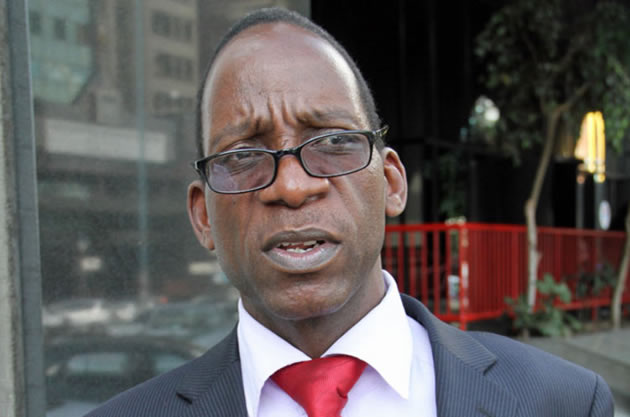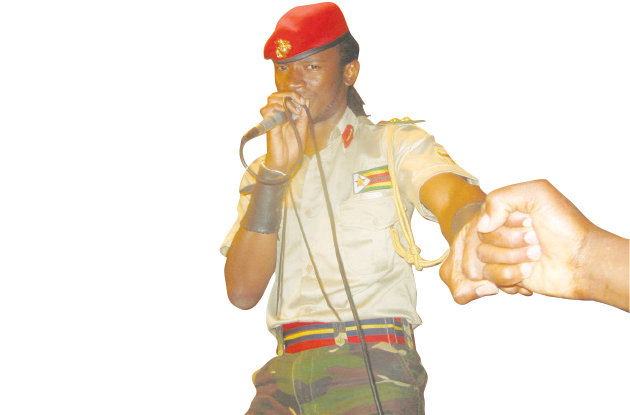EDITORIAL COMMENT: Losing parties have themselves to blame

Opposition politician, Professor Lovemore Madhuku stated the obvious when he told Midlands State University students on Friday that there is no rigging in local elections.
The challenge though is that that obvious fact is never publicly acknowledged by his colleagues in the opposition and their powerful handlers abroad, a rejection of the truth that has been used, most sinisterly, in the 16-year propaganda onslaught against Zimbabwe and the economic strangulation drive that has wrought some of the worst human suffering in history.
Alleging that Zanu-PF rigs successive elections the MDC, has not only called for the imposition of sanctions on the country but also for illegal regime change. Europe and America were convinced. They imposed the ruinous embargo in the early 2000s and continue to justify it on the non-existent basis of ballot fraud. National Constitutional Assembly (NCA) leader and University of Zimbabwe law lecturer Professor Madhuku said local elections are held in line with the country’s laws. He said in the 2013 general elections, the Zimbabwe Electoral Commission (Zec) performed its duties in accordance with the laws.
He made the important remarks while delivering a public lecture at the MSU on the importance of constitutionalism and the rule of law in Zimbabwe’s current socio-economic context.
“In our country when it comes to election rigging, no one really knows what it means to rig an election,” said Prof Madhuku. “If you go by the law, there are very few instances when the law is not being respected, like not giving other political parties space or enough space but the law here is followed. Maybe the law may not be good but they follow the law. For instance, people in the Diaspora are not allowed to vote and this is in accordance with the law, but in political circles some want to call it rigging but that is different because the law is not giving them the right to vote.”
After the then united MDC participated in its first election in June 2000 and lost to Zanu-PF, it alleged that the ruling party rigged itself to the marginal victory. Citing that claim, the party approached its backers, Britain, the United States and their allies who imposed illegal sanctions on Zimbabwe a few months later. Even when the opposition party split later on, weakening itself in the process, its various splinter groups contested and lost elections, only to reject the outcomes on the basis of “election rigging.”
It did not matter that Sadc, African Union, Non-Aligned Movement and other reputable institutions without vested interests in the country gave the elections a thumbs-up all the time, the MDCs and their funders had a contrary position.
Prof Madhuku spoke well on Friday by quashing that view. We know, however that MDCs and their foreign partners will not agree with him, publicly at least. In private, they actually acknowledge that elections are not rigged and cannot be rigged in this country but for political expediency, they publicly choose to attack their validity.
We have highlighted that elections in this country cannot be rigged. This is so because the government, in close consultation with all parties, put in place a legislative framework and system of checks and balances that enables Zec to run credible elections.
In terms of the law and common practice, all contesting parties actively participate in the electoral cycle, from preparing for the polls as far as is legally permissible, the actual balloting to the aftermath.
The Electoral Act says all parties contesting in an election must have free and fair access to the public media for them to articulate their manifestos and to campaign. The Zimbabwe Broadcasting Corporation, the flagship public media outlet as well as New Ziana’s range of provincial titles are aware of that provision and have always gone the extra mile to have all political parties in their programming.
When notified in due time of impending campaign rallies, police always approve them and provide security to ensure no violence occurs. In instances where police, citing incapacity to provide security, have not sanctioned the rallies, the opposition have exercised their rights to approach the courts and have their campaign meetings approved.
When it comes to actual balloting, contesting parties are able to inspect voting materials and understand how secure they are. Regulations actually allow polling agents of all contesting parties and observers to satisfy themselves before the first vote is cast that all the ballot papers, polling boxes and other materials have not been tampered with. Accredited polling agents and observers are free to move in and out of polling stations, observe the process and raise objections, if any.
After polling they also participate in the verification and collation of all voting materials after which counting of ballots begin. When votes are counted, all representatives of contesting parties and Zec officials at respective polling stations agree on the tallies and actually append their signatures to the results that are then displayed outside for everyone to see which candidate got how many votes.
With this full-spectrum involvement of all competing parties at every stage of our electoral cycle we are confident that no party can rig elections in Zimbabwe and get away with it. Any party that loses does so freely and fairly thus must blame only themselves and their sort of politics, not the official electoral machinery.
It is encouraging when some in the opposition agree that elections are never rigged, and by the same token, that Zanu-PF’s successive victories are not stolen, but deserved and won freely and fairly.












Comments